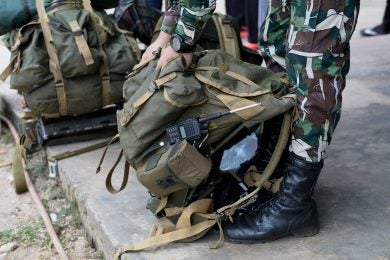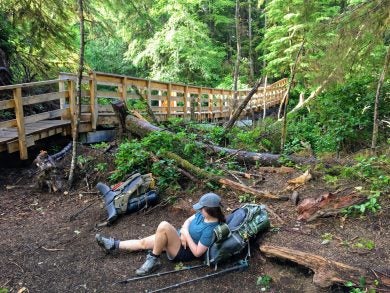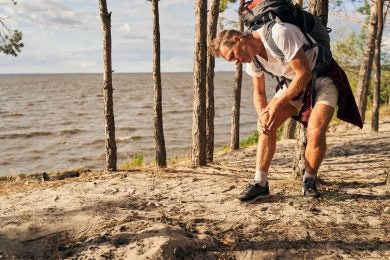The Path Less Traveled #003 – Lighten Your Pack – Part 1
Andrew D 02.15.21
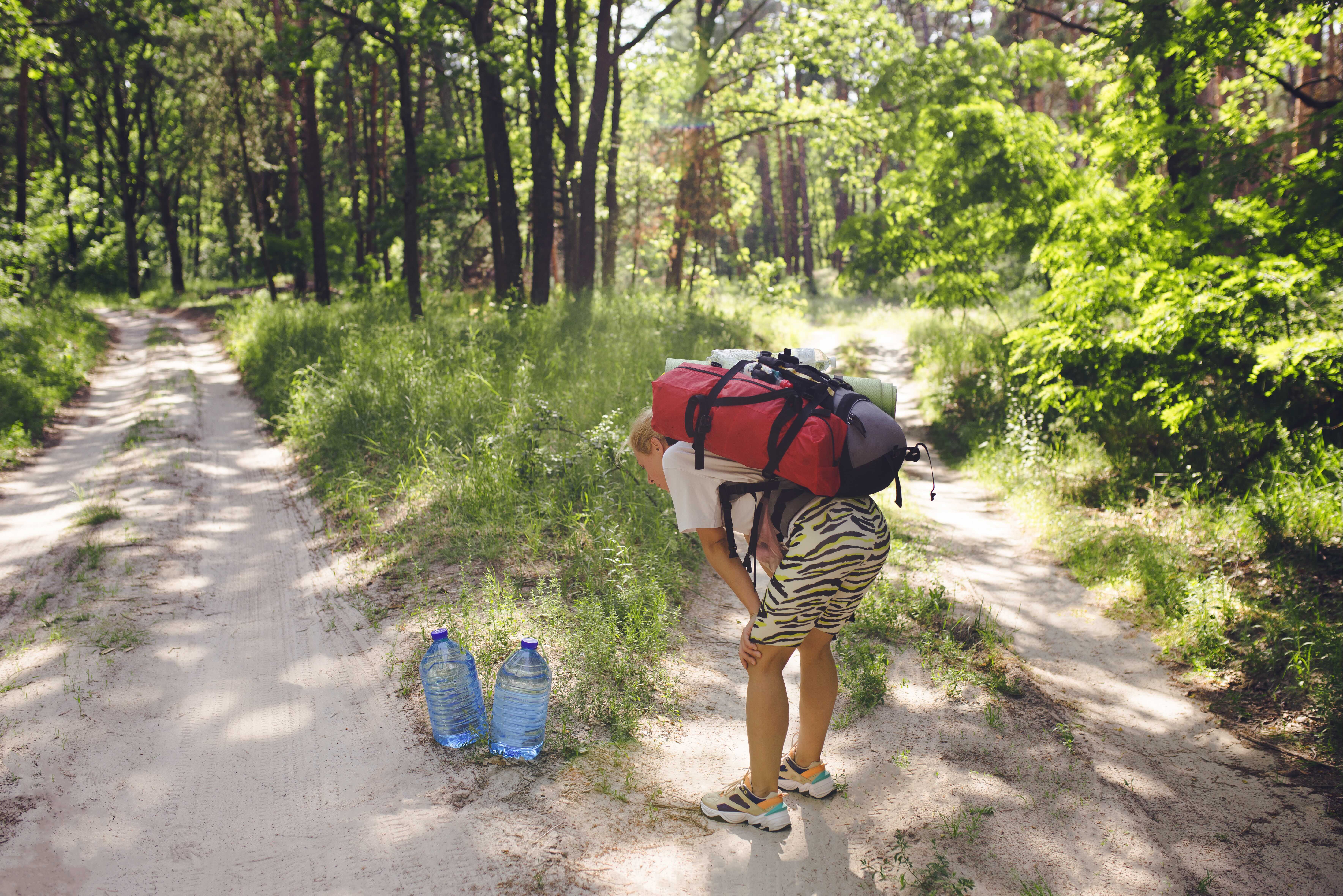
Lighten Your Pack – Pt. 1 – Effects of Load Weight on a Hiker
This post is a continuation of the three-part series on why you should start taking greater consideration to the loads you bring out with you while hiking, backpacking, and camping, with thoughts on decreasing load weight.
Part 1 – Effects of Load Weight on a Hiker
Part 2.1 – Methods to Decrease Load Weight While Backpacking / Camping
Part 2.2 – Methods to Decrease Load Weight While Backpacking / Camping
Part 3 – Improving Hiker-Load Relationship
Welcome to our recurring series of “The Path Less Traveled.” In this series, we want to take you along for our exploits out in the wilderness while hiking, camping, exploring, and general adventuring. This will include our small daily victories, foibles, tips, tricks, and reviews of gear we authentically appreciate and frequently utilize. While a well-worn trail can often be the pathway to a leisurely day, the paths less traveled can often spur on some of the greatest memories, misadventures, and fun we could imagine. Join us in the Comments as we share our travels and hopefully we can all come together for a greater appreciation of the outdoors.
All branches of the DOD spend billions of dollars a year on research to increase the effectiveness and lethality of their systems. Within this research, we have seen many fields focusing on weight reduction to improve equipment, logistics and the soldier’s performance.
In 2019 alone, the DOD spent roughly 70 billion on all fields of RDT&E (Research, Development, Test, and Evaluation). This kind of research is not new and goes back centuries – with great leaps achieved since the Napoleonic era. The research to come out after World War 1 clearly displayed marching and transportation times decrease significantly when pack weight decreases.
For me, the scene in Platoon comes to mind where Charlie Sheen is becoming faint and delirious from the march when the sergeant comes by saying “You’re humping way too much, troop, don’t need half this shit.” Lugging too much weight around will wreck your performance, cognitive abilities, moving speed and even cause injuries. If the military is spending millions a year trying to find ways to reduce the load of a soldier, it must be important, no?
This is going to be a multi-part series on why you should start taking greater consideration to the loads you bring out with you while hiking, backpacking and camping.
- Part 1 – Effects of Load Weight on a Hiker
- Part 2 – Methods to Decrease Load Weight – Part 1
- Part 2.2 – Methods to Decrease Load Weight – Part 2
- Part 3 – Improving Hiker-Load Relationship
You May Not Like It, But This is Peak Performance?
The human body is a finely tuned machine that can endure much more than it should, be it temperature, malnutrition, pain, or even decision making in stressful times. Once you begin exerting energy, the increase of weight put on your body significantly multiplies the required energy output to continue at the same pace/speed. Army research states that speed and weight are the determining factors for energy expenditures at rate that is pretty surprising.
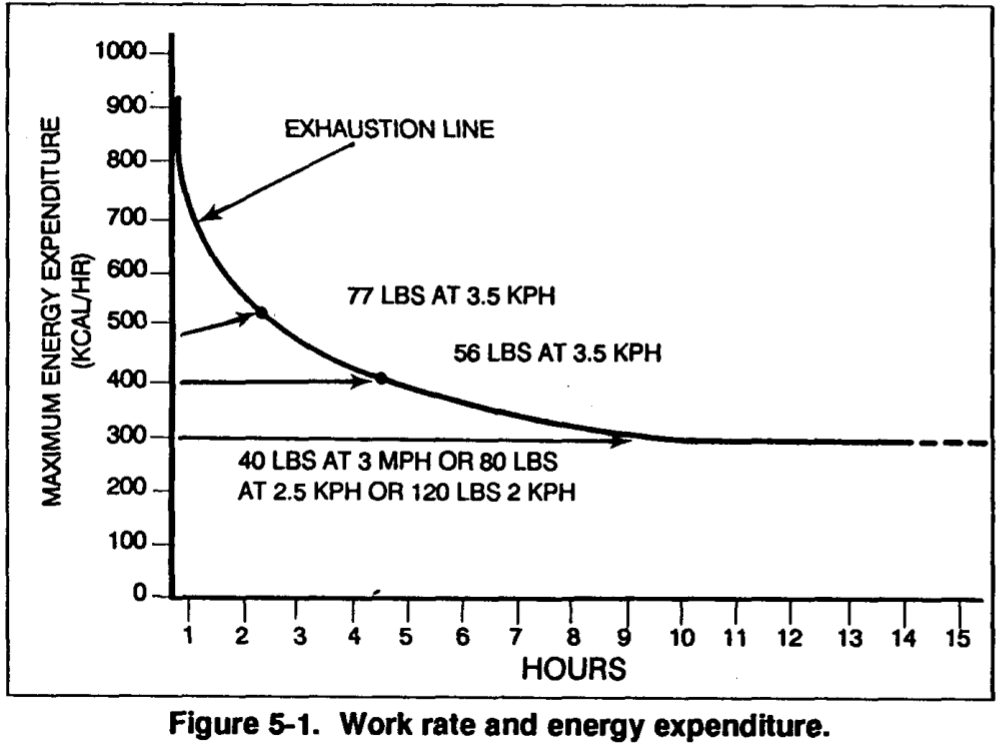
This diagram is showing that at the same speed, carrying 16lb more gear increases the calories burned by 100cal/hr., as well as decreasing duration to fatigue. Humping 40 pounds for 9 hours is the same as humping 56lb for four hours. As we will discuss in Part 3, load distribution also has a significant influence on energy exertion. For each kg (2.2lb) placed on feet, it increases energy expenditure by 7-10%. I don’t know about you, but I often hike faster than 2mph, and I’m not wanting to carry an extra 5,000 calories to keep my energy (and blood sugar) up. So, as we can see, endurance is decreased when more weight is put on the hiker/soldier.
Weight increasing fatigue also has effects on one’s thinking processes. The more weight you’re humping, the increased likelihood that decisions will not be made quickly enough; think when slipping on a loosely packed surface – when fatigued, are you able to respond quickly enough and in an appropriate fashion?
Researcher Dr. Zheng reported a soldier’s shooting response times decreased by 0.1 second when loaded with weight, as compared to unloaded response times. These kinds of events under load while on the trail could be the difference between rolling your ankle or catching a briar to the face when a less-tired you could have responded quicker.
Having more fatigue from a heavier pack also makes setting up camp or completing post-hike activities more difficult. Research shows that fatigue increases perceived difficulty of a task. Ever had a time when completing a task felt much more difficult than it should, and you walk off? Then when you come back in a few hours, you complete the task swiftly? Yeah, that’s a Snicker’s moment where you’re out of gas and should have refueled earlier.
How about fatigue and time taken to complete the task? I know for a fact that there were several nights on the Allegheny Highland Trail where setting up my tent took twenty or so minutes (three times more than usual) simply because I was not able to force myself to move any quicker.

But Do I Really Need To Hurt?
Increasing weight of your pack also increases the rate of potential and inevitable pains. The most common injuries with increased pack load are blisters, feet and knee pain, and back pain. These are mostly avoidable, but anyone who has lifted weights with low reps, high weight OR high reps with med weights knows that muscle soreness is going to be felt no matter what. Endurance is definitely something that will be discussed in Part 3.
Blisters. We’ve all had ‘em. Are they avoidable? Yes. Are you sure? Not really, but I’ll still say yes. The Army Research Laboratory in 1997 reports that weight load does in fact increase blisters. In their research, they found over 10km (6.2mi) that 6% of those with an 18kg (39.6lb) pack experienced blisters as compared to those who carried 27kg (59.5lb) and 36kg (79lb) experienced 6-7x more blisters than those with the 18kg pack. Even with good socks, shoes, moisture and friction management, it looks like added weight definitely is a variable that should also be considered when heading out into the woods.
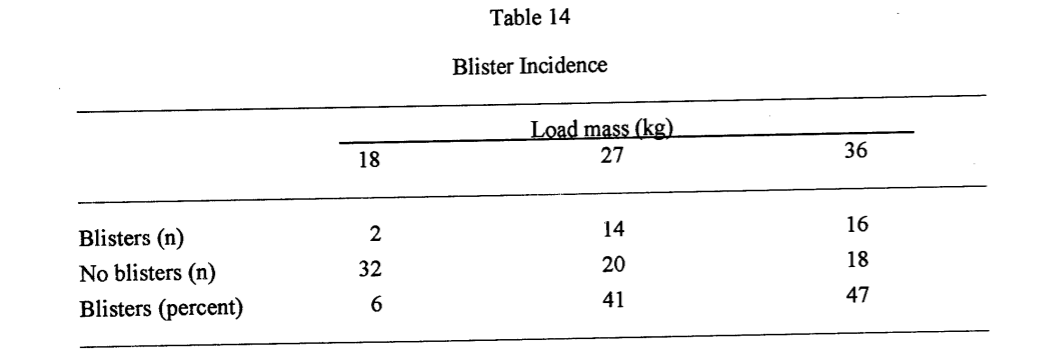
Hiking foot and knee pain has been researched ad-nauseum, but the data in it is not for the layman’s daily conversation. The data is primarily speaking in statistics and provides recommendations for alleviation of the pains, rather than preventing them. There are a few ways to reduce these pains, but this is primarily how the hiker interacts with their gear, rather than solely focusing on the weight, as any weight will increase the likelihood of injury.
Back pain is another form of injury that is difficult to directly associate with increased weight, other than added weight, it means a higher likelihood of pain. Once again, human-pack interaction and distribution of weight seems to be one of the best strategies to reduce the likelihood or intensity of pain occurring, this will be a neat section for Part 3. There was a 2007 university study where students did an annual survey of backpack weight and back pain that determined an increase of 4kg (8.8lb) to a backpack increases the odds of back pain by 25%.
In review, pack weight has a significant effect on the following:
- Energy Output
- Fatigue
- Cognitive Processes
- Pain
- Injuries
I’m not sure how many masochists we have here, but pretty confident that no one wants to experience any of these factors in unnecessary amounts when attempting to complete a feat or have a great outdoor adventure. Just because you want to go out and do an overnight hike, weekend trip to God knows where, or just flat out pumping out miles – it is proven we can do better with less weight carried.
On the next part of this trilogy, we’re going to go over planning and purchasing strategies to get your pack weight down to a manageable to ideal level.
